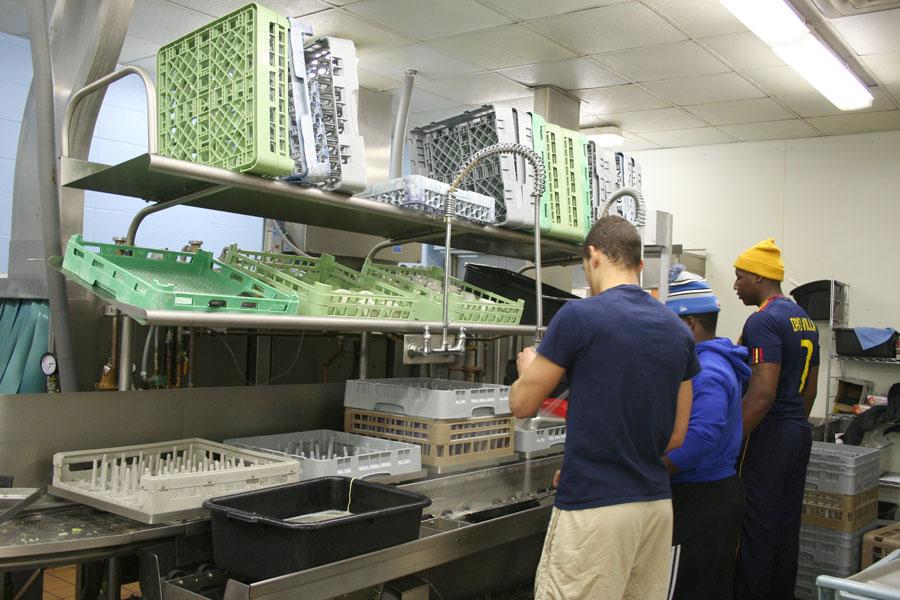Changes to the summer work program mean students are only allowed to work for a maximum of 29 hours per week, which is right below the line of full-time work. Students used to be able to receive a free credit if they worked the full 40 hours. This option is also being cut as of this summer.
Brandon Brown, sophomore international business and writing major, is not happy with these changes and does not think other students will be either. Brown believes that there will be a “massive fallout” of student workers. Being a supervisor in the cafeteria, he estimates of the 15 students who have said they would work over the summer, four will decide not to have the job anymore.
For the rest of the student body, he claims that them staying or going “is a toss-up. Most people will leave.”
The most frustrating part of all of this is how the “Board of Trustees does everything behind the students’ backs. We were not asked or confronted. And no one has even told us. It’s all out of touch,” said Brown. He feels that this is “f—ing with [his] money.”
Freshman computer science major Zac Prosek shares similar views with Brown. Prosek states that, in his opinion, “[Lakeland] will lose half of its student workers over the summer.”
Prosek claims that he “did” have his summer planned, but with these hour cuts, he does not know how he would make ends meet if he only had one campus job. He was relying on the free credit if he worked 40 hours. If Prosek cannot get another job to help supplement the money he thought he would earn, he thinks he might not work over the summer at Lakeland.
Chloe Reed, freshman Spanish major, also felt like she had her summer planned out, but these hour cuts may have altered that. She says that she “had plans to stay over the summer…. But now I have to look for alternative jobs or maybe even getting two.”
Reed was thinking of working for housekeeping, but she is not sure if that one job would be enough.
Reed says she would need two jobs because the amount of money she would get from 29 hours is “realistically not enough to live off of.”
Carole Robertson, vice president and chief financial officer, states that stipend jobs (such as with the English Language Institute program) are going to be unaffected by these hour cuts. However, some stipend jobs—such as some of the positions for the music camp—are getting looked at whether to keep them as stipend jobs or change them to hourly jobs.
As for hourly jobs, Robertson states the reason for the cuts is a funding issue. About $136,000 comes to Lakeland through the federal work study program, and Lakeland pays the $1.1 million that is left over (to pay for student workers).
The main source of money for the college is tuition money. There is not much grant funding. According to Robertson, only around $1 million comes from alumni donations, and the rest of what Lakeland receives for funding is from tuition and room and board.
Also, recently the college has switched to zero based budgeting—which is where all spending must be justified and each department starts with a “zero base.”
Because of this, Robertson stated that each department has been “asked to have only the ‘have-to jobs.’ In other words: the critical jobs.”
With this zero-based budgeting, the college looked at the number of summer workers and found the average of hours worked (so that hours could be capped at the “right amount”), which was about 26 hours, hence the cut-off at 29 hours.
Because of this, Robertson claims that, “I don’t think [students] will be affected. Most worked under 29 hours.”
Robertson says that there are many local businesses that are willing to hire Lakeland students and pay better. Robertson sees great benefits for students who take the opportunity to work off campus and build many connections.
There are some exceptions to the cuts.
Students with senior standing at May 31, 2014, and who are employed in a summer position requiring 29 hours of work per week, will be eligible for a tuition grant of three credit hours for the 2014 summer term. If the student falls below 29 hours per week, the tuition grant will be rescinded.
The biggest point that Robertson wished to get across was, “Every dollar we spend is essential. Student X getting a dollar could be coming out of Student Y’s pocket.”


